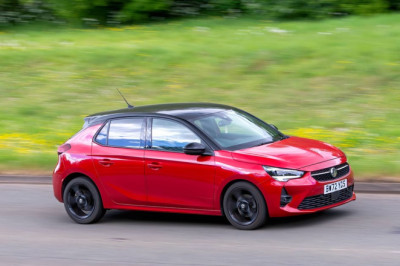
Motorists have been given a 24-hour warning to avoid a substantial fine. Failure to pay your vehicle tax could result in a £1,000 penalty.
This payment, also known as vehicle tax or road tax, is a charge for using a motor vehicle on public roads in Britain. The funds are then used for infrastructure enhancements, including the maintenance and repair of roads.
On social media platform X, the Driver and Vehicle Licensing Agency (DVLA) posted a reminder stating: "You can tax your vehicle online 24 hours a day, seven days a week on http://gov.uk/dvla/tax ".
"Do it now. #TaxItDontRiskIt #DVLADigital."
You can tax your vehicle online here or by phoning 0300 123 4321. To do this, you'll need a reference number from either:
If you can't locate these documents, you'll need to apply for a new log book. Payments for the tax can be made via debit or credit card, or by setting up a Direct Debit.
It's crucial to remember that even if no payment is due, you must still register your vehicle for tax. The DVLA's website states: "You must tax your vehicle even if you do not have to pay anything, for example if you're exempt because you're disabled."
Should you neglect to tax your motor, you'll be sent an out of court settlement (OCS) letter. The charge stands at £30 plus one and a half times the outstanding vehicle tax amount.
Failure to settle the OCS could result in the case being taken to magistrates' court as a criminal matter, where fines can reach either £1,000 or five times the taxable sum, whichever figure is greater.
Your motor also faces the possibility of being clamped, with additional fees potentially being added. No payment is required if you own any one of the following.
Vehicles used by a disabled person
If your car is utilised by someone with a disability, you'll want to claim the disability exemption during vehicle tax time. Evidence of eligibility for the disability exemption will be required, of course.
The DVLA has clarified: "You can remove an exemption from a vehicle if it's no longer being used by a disabled person. You can only use your exemption on one vehicle at a time. If you have more than one vehicle, you'll need to choose which one will be exempt from vehicle tax."
Vehicles operated by organisations that provide transport services for disabled individuals are also tax-exempt, although this does not extend to ambulances.
For historic vehicles, any motor made before January 1, 1985, is not subject to vehicle tax. Owners can verify their vehicle's eligibility via the the Government website here.
Mobility scooters and powered wheelchairs are likewise exempt from vehicle tax under certain conditions:
Regarding mowing machines, the DVLA specifies: "You do not have to pay vehicle tax on a mower that's designed and used for cutting grass only. This does not include tractors used to tow gang mowers."
Steam vehicles
Steam-powered vehicles are entirely exempt from vehicle tax.
This category includes:
Additionally, electric heavy goods vehicles are exempt from vehicle tax. Electric heavy goods vehicles weighing more than 3,500kg are not subject to the tax.
Prior to a rule change on April 1 this year, electric cars, vans, motorcycles and tricycles were also exempt from road tax. Hybrid electric vehicles are now also liable for tax.
For further details and to verify your exemption status, visit the Government website here.














